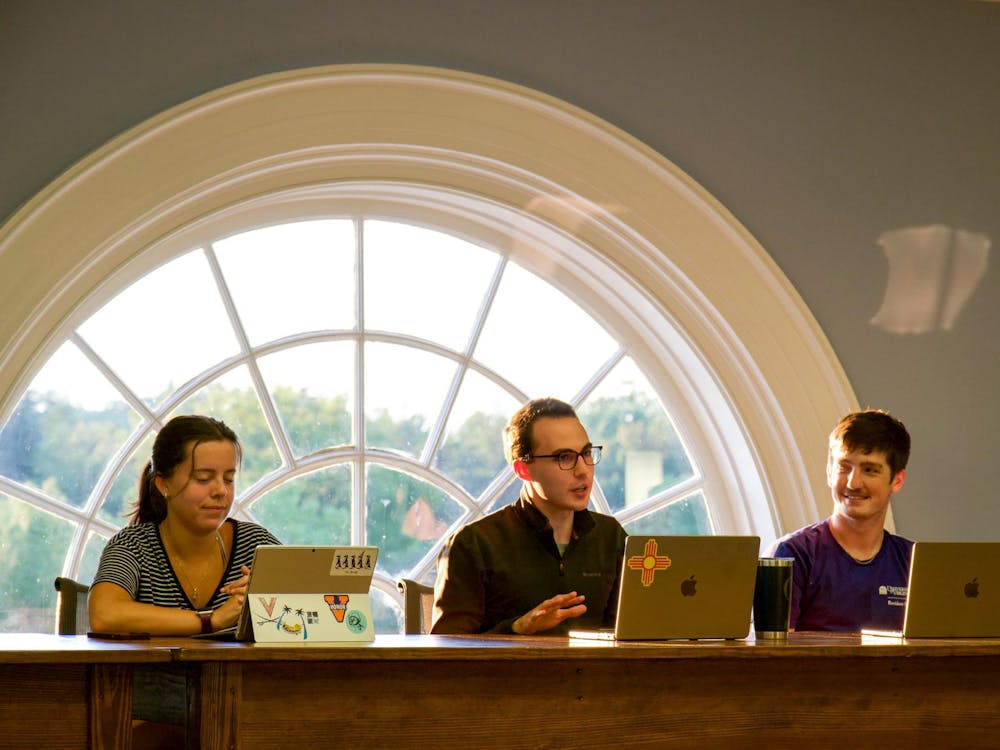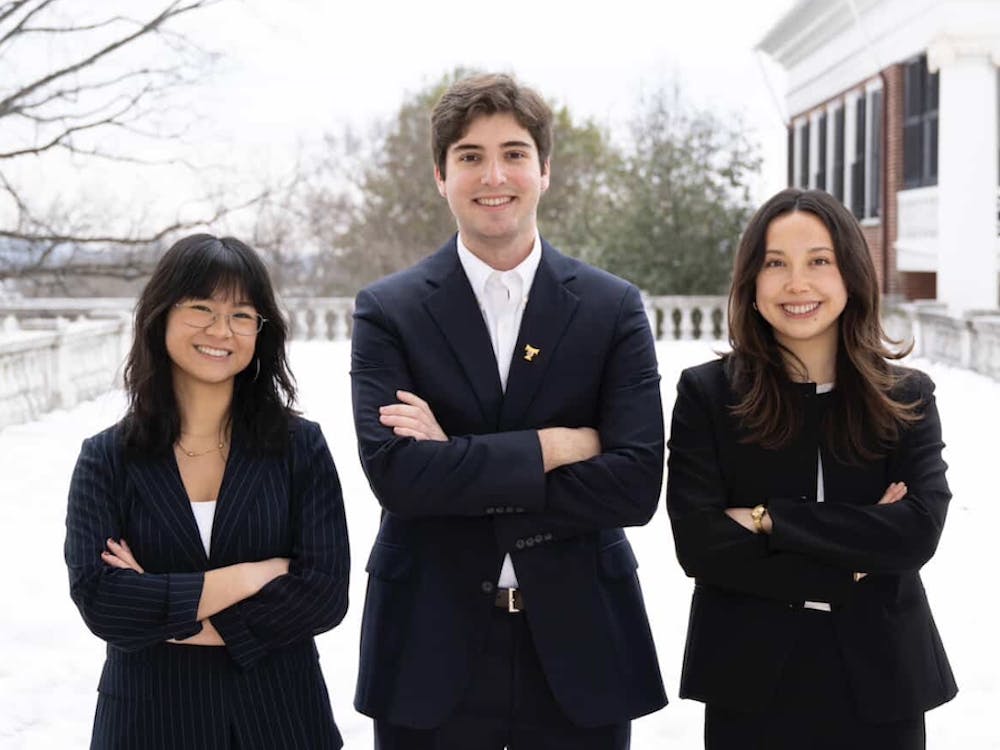If bigger is better, the University will soon be as good as it gets.
Many examples of University expansion, such as the new parking garage, new basketball arena and the South Lawn Project, are well known to students.
Others, such as the pending acquisition of the 180 to 200 acre Foxhaven Farm by the University's Real Estate Foundation, have gone virtually unnoticed, but nonetheless have implications for what the University and its surrounding areas will look like years down the road.
Making a Deal
Foxhaven Farm encompasses a wide swath of land to the West of Charlottesville that touches the Bel Air neighborhood and Birdwood golf course to the North and East, the Charlottesville Reservoir in the West and nearly to Fontaine Avenue in the South.
The owners of Foxhaven Farm who agreed to the deal with the foundation, Henderson and Jane Heyward, purchased the land in 1949.
For years they had close ties to many University officials. Jane said her husband, an architect, suggested the construction of the bridge over Emmet Street that goes from the Ruffner Hall to in front of Brown College.
The Heywards agreed about 14 years ago years ago to eventually give their land over to the foundation, according to Susan Harris, assistant to Leonard Sandridge, the University's executive vice president and chief operating officer.
Yet under the agreement, the Heywards kept a "life estate," meaning they kept their title to the land for the remainder of their lives.
Jane Heyward, 86, still lives on the property today.
"They're going to get the land, my husband arranged for that," Heyward said. The University "doesn't own any of it until I die. I can do whatever I want."
Planning Ahead
Many of the University's expansion plans have obvious goals. The new basketball arena is designed to be a state-of-the-art upgrade over U-Hall, whereas the parking garage is needed to counteract temporary loses in parking and to serve the ever-growing University community.
Yet where a farm and
an open, undeveloped tract of land fits into the University's plans is unclear.
In fact, even University officials are not sure what they want to do with Foxhaven Farm.
Harris said because the foundation does not know when it will acquire the land, it is difficult to create a definitive plan for its use.
According to officials, stretching the boundaries of the Academical Village is part of prudent planning, even if the details are murky for now.
Tim Rose, chief executive officer of the U.Va. Foundation, said that although he is unfamiliar with the specifics of Foxhaven Farm, in general the University is interested in acquiring land near its boundaries -- even rural land that does not obviously offer anything to the University.
"The only rural properties we own are the Kluge properties and properties contiguous to the University," Rose said.
The idea behind acquiring such land is that even if it is not needed immediately, the University may well need more places to expand as its student body and staff continue to grow.
According to Rose, officials are trying to prepare for the University's needs as much as 50 to 100 years from now.
"The term in the industry is land banking," Rose said. "It's just sitting there to be used."
Harris agreed that the foundation's interest in Foxhaven Farm was not particularly unusual.
"It's adjacent to Birdwood," Harris said. "It's near University Grounds."
A Place to Learn
Perhaps complicating the University's plans is the fact that Heyward has placed "preservation easements" on much of the land, which restrict the ways in which it can be changed.
While officials do not have a clear idea as to what Foxhaven Farm might be used for in the future, Heyward has plenty of ideas of her own. Though the land is guaranteed to go to the foundation after Heyward dies, she tried a few years ago to create opportunities for its use before then.
The area around Heyward's house has an eclectic mix of plant life that she said was designed by a prominent gardener and that might well be of interest to University students and faculty.
"I would love to have this be an arboretum," she said.
Heyward also was interested in hosting younger students on her estate.
"The other half was going to be for children to learn about nature," she said.
Heyward said many people in the University, including Education faculty and botanists, were interested in the proposal, but ultimately the University did not follow through on her ideas.
Mary Olien, assistant curator at the Blandy Experimental Farm, who was involved in the discussions, said the idea was brought up a few years ago, perhaps in 2000.
Olien said that new facilities would have had to have been built on Heyward's land to accommodate the influx of visitors and that a variety of logistical challenges hampered the plan.
"There was a large number of complicated issues," she said.
Cost also was a concern.
"There was inadequate funding to implement things," Olien said.
She added that nothing precludes the idea from being brought up again, though she has not been involved in discussions of it recently.
Sharing the Land
Despite the setbacks, Heyward, whose name means "lord of the hedges," refuses to allow her land to go unused.
She said that until she recently developed a nerve problem that made walking more difficult, she loved to wander far and wide across her extensive property.
Yet she said her physical ailments have not lessened her love of Foxhaven and nor have they reduced her willingness to regale visitors with stories of the University's past.
Always interested in sharing her land, Heyward has set up a series of running trails over her property that are marked by green signs that are open to the public, except during hunting season.
She said she feels that the land can offer a welcome respite to city dwellers.
"It's just so close to town, but you feel like you're in the country," she said.
And Heyward still hopes the University might be interested in sharing in this experience as well.
"There's a faint hope they might still be interested," she said. "If you're going to have land, people should enjoy it."






